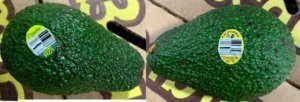The U.S. Food and Drug Administration is cautioning pet owners not to feed their pets three lots of Darwin’s Natural Pet Products raw dog food after samples from these lots tested positive for Salmonella. The recall includes 2 lots of Chicken Recipe with Organic Vegetables for Dogs and one lot of Turkey Recipe with Organic Vegetables for Dogs. These products are manufactured by Arrow Reliance Inc., doing business as Darwin’s Natural Pet Products, and are sold online direct to consumers. The FDA collected and analyzed unopened samples of products from these three lots in response to a consumer complaint. Samples from all three lots tested positive for Salmonella. The FDA considers the actions taken by Arrow Reliance removing these products from the marketplace to a recall. However, the firm has not issued public notification, and the FDA is not confident that the firm’s customer notifications are effective for this ongoing recall. Once Salmonella gets established in the pet’s gastrointestinal tract, the animal can shed the bacteria when it has a bowel movement, and the contamination will continue to spread. @ https://www.fda.gov/AnimalVeterinary/NewsEvents/ucm634394.htm?utm_campaign=3-26-2019-Darwin&utm_medium=email&utm_source=Eloqua
ruth
The FDA is cautioning pet owners not to feed three lots of Darwin’s Natural Pet Products Raw Dog Food after products from these lots tested positive for Salmonella. If you have these lots of Darwin’s Natural Pet Food, throw them away.
ruth
The Canadian Food Inspection Agency has announced the recall for teas made by the brand Organic Matters. The agency says loose-leaf tea products may be unsafe due to possible salmonella contamination. The affected products include Organic Tulsi Tea Blend (Holy Basil) and Organic OM Tea Blend. They are sold in British Columbia and possibly in other parts of the country.@ https://www.cbc.ca/news/canada/british-columbia/recall-organic-matters-tea-1.5066981
The Canadian Food Inspection Agency has issued a recall for teas made by the brand Organic Matters.
ruth
The Canadian food inspection Agency announced the recall of Janes brand Pub Style Chicken Nuggets (Canada/Nationwide) & Organic Matters brand Teas Recalled for Salmonella (Canada/BC, Possibly Nationwide. @ https://stopfoodborneillness.org/3-22-2019-canada/
https://stopfoodborneillness.org/3-22-2019-canada/
ruth
Henry Avocado Corporation recalled California-grown conventional and organic whole avocados sold in bulk at retail stores because they have the potential to be contaminated with Listeria monocytogenes. The recall is issued out of an abundance of caution due to positive test results on environmental samples taken during a routine government inspection at its California packing facility. There are no reported illnesses associated with this recall. Henry Avocado’s facility in California distributed its products in Arizona, California, Florida New Hampshire, North Carolina, and Wisconsin. @ https://www.fda.gov/Safety/Recalls/ucm634230.htm?utm_campaign=Henry%20Avocado%20Recalls%20Whole%20Avocados%20Because%20Of%20Possible%20Health%20Risk&utm_medium=email&utm_source=Eloqua
Henry Avocado Corporation is voluntarily recalling California-grown whole avocados sold in bulk at retail stores because they have the potential to be contaminated with Listeria monocytogenes. Henry Avocado is issuing this voluntary recall out of an abundance of caution due to positive test results on environmental samples taken during a routine government inspection at its California packing facility. There are no reported illnesses associated with this recall.


